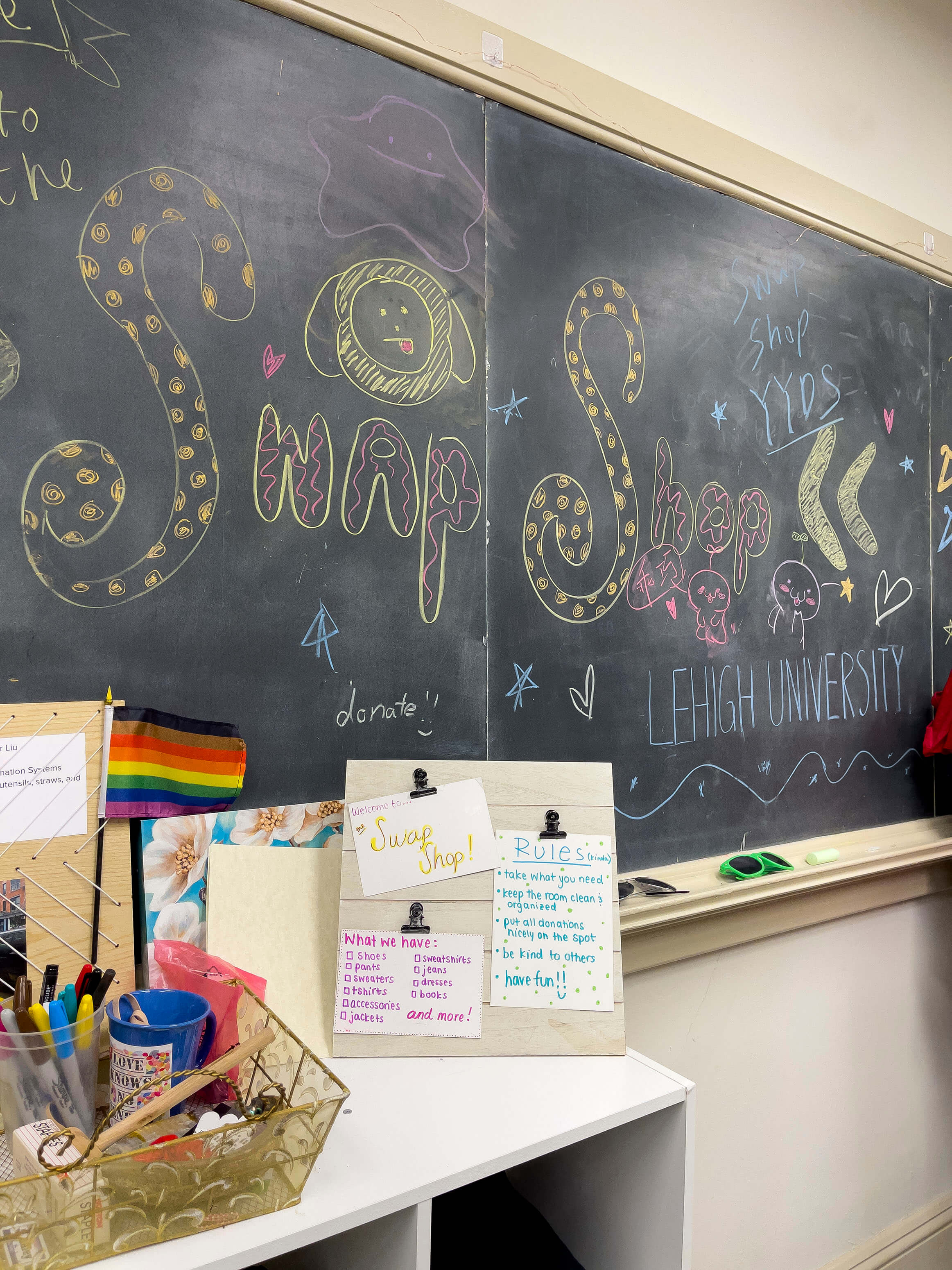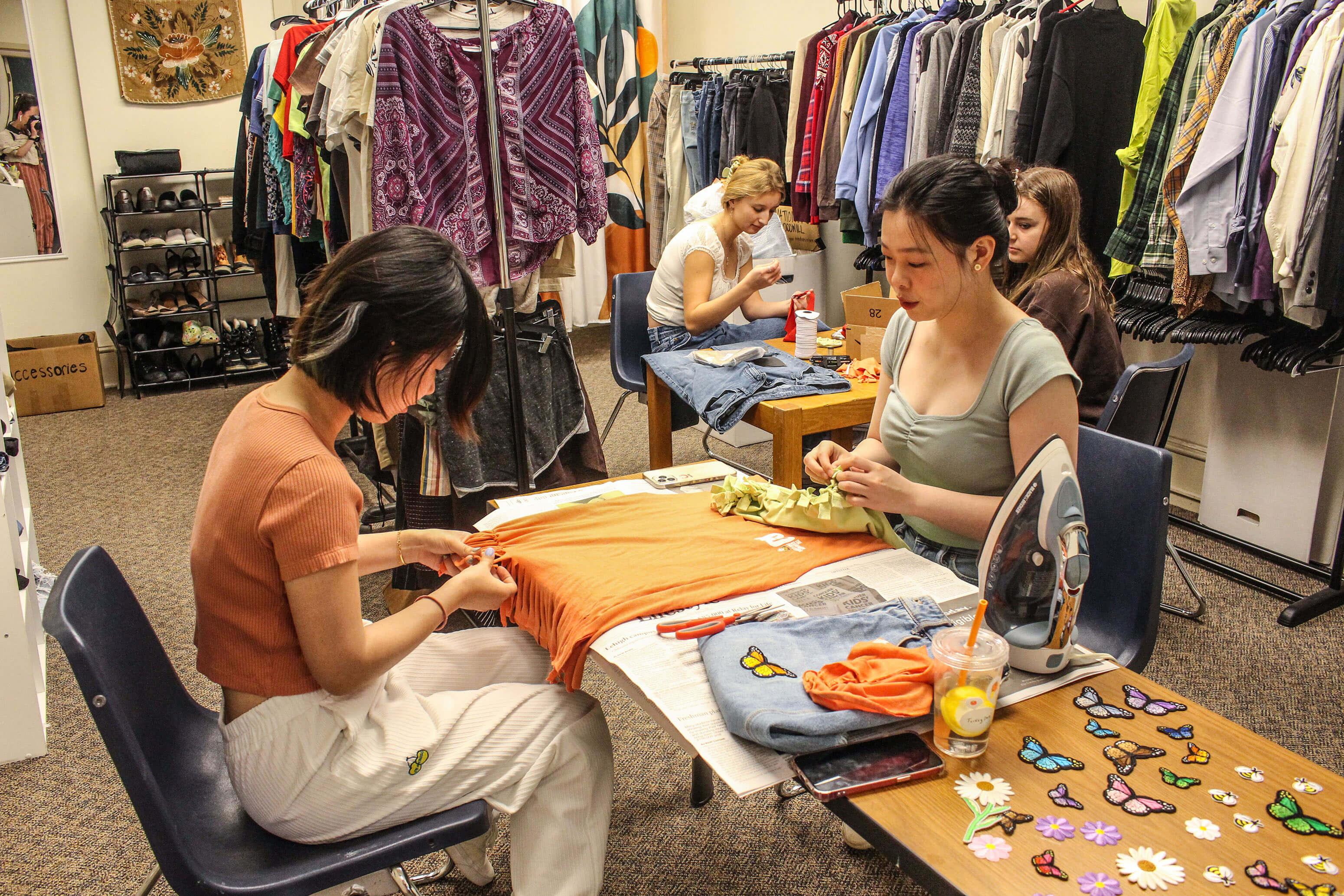Part of the college experience for many is juggling campus life on a budget while maintaining a functional yet trendy wardrobe. The popular practice of fast fashion allows customers to access trends quickly at a more affordable rate — but, as a result, many closets are bursting at the seams with countless style combinations.
When the original owner has exhausted their interest in a particular item, the textile journey ends in a landfill, or some lucky pieces find their way into thrift or consignment stores. Finding gently worn, trendy clothes at reduced prices is a satisfying score for eager thrifters, but there is still an associated cost that may not be accessible to all — especially on a student’s budget. When fashion is of less concern and the need is practical winter clothing or appropriate business wear, even second-hand clothes can carry a significant price tag.
 The LU Swap Shop accepts donations of gently used, unwanted clothing and accessories and allows students to “shop” for second-hand styles at no cost. The Swap Shop’s mission is not only to be a free clothing resource for students but also to divert clothing waste from landfills by encouraging sustainability, inclusion, and thrifting.
The LU Swap Shop accepts donations of gently used, unwanted clothing and accessories and allows students to “shop” for second-hand styles at no cost. The Swap Shop’s mission is not only to be a free clothing resource for students but also to divert clothing waste from landfills by encouraging sustainability, inclusion, and thrifting.
The Swap Shop is entirely student run and managed with oversight from the Office of Sustainability. Audrey McSain, sustainability director, acts as the work study supervisor and speaks passionately about the opportunity to help Lehigh students keep the shop alive, bringing in new work study students each year.
McSain says the accessibility piece of the Swap Shop appeals to her most. She has seen her career focus gravitating toward DE&I and accessibility work as she has become increasingly aware that not every student comes from the same background and means. Beyond the Swap Shop, McSain also supports additional initiatives to make sure more experiences are affordable and available to LU students from all communities and backgrounds. Hungry Hawks — also entirely student run with oversight and support from the Office of Sustainability — reduces food insecurity by making leftover Lehigh-catered food available to students via app alerts. McSain also partners with the Center for Gender Equity to offer Campus Cup, which provides free, sustainable menstrual products for students who need them.
“If there are students worrying about where their next meal, winter coat, or menstrual products are coming from, then the work the Office of Sustainability is doing with these initiatives is worth it to help fulfill those needs,” says McSain. While there is no financial exchange for the products offered at the Swap Shop, some cost is incurred to maintain the shop, mend donated items, and provide supplies for events. Continued support from the campus and alumni communities is essential to continue operations.
McSain notes broadened interest throughout the university from groups like the Center for Career and Professional Development and the Center for Student Access and Success, who want to bring professional attire to students at networking events for interviews. The Pride Center, the Community Service Office, and the Office for International Students and Scholars want to provide affordable formal options for special events and practical clothing for cooler months, especially for international students originating from warmer climates. There is also a need to support queer and trans students seeking gender-affirming clothing.
The full Lehigh community of students, parents, alumni, staff, and faculty are encouraged to contribute to the mission of the shop. Opportunities are available to share donations of clothing, funds and volunteer hours also are needed.
Follow @luswapshop on Instagram to learn about clothing arrivals, drop-off events, clothing drives, educational events on sustainability and fast fashion, and DIY upcycling events where students can make new items with thrifted materials, such as reusable produce bags, iron-on patches, and scrunchies.
And remember — when you are done with it, the LU Swap Shop will take it.
Follow Lehigh Sustainability on LinkedIn to explore the full range of opportunities to contribute on campus to sustainability efforts.